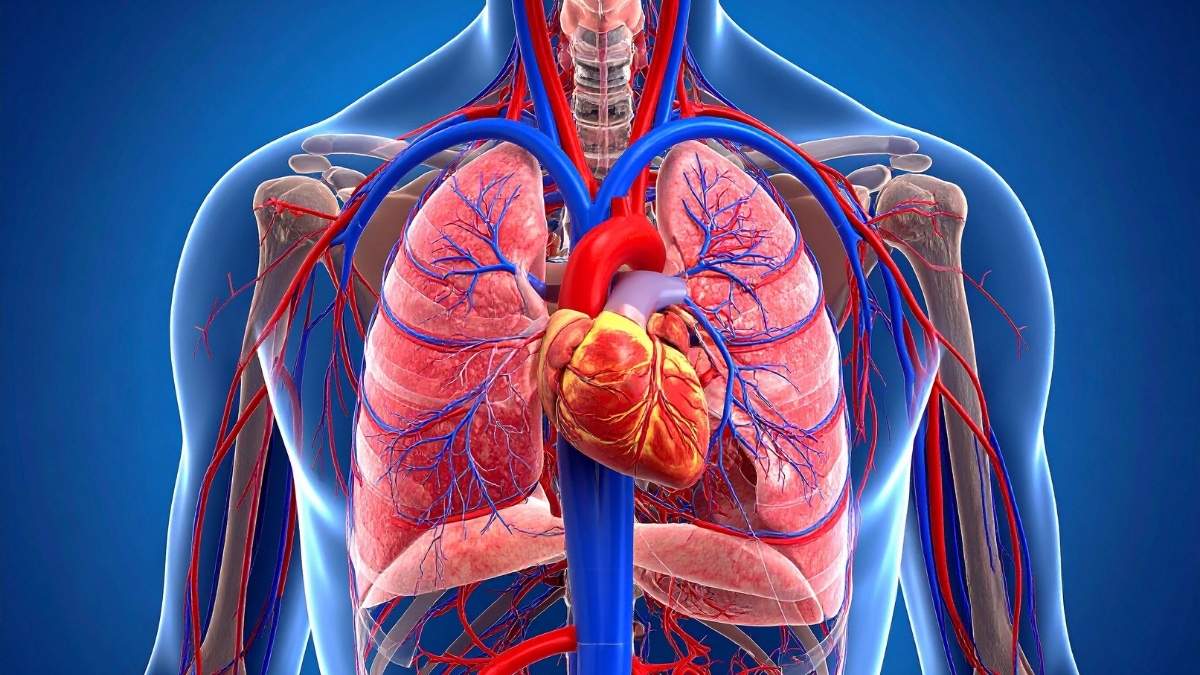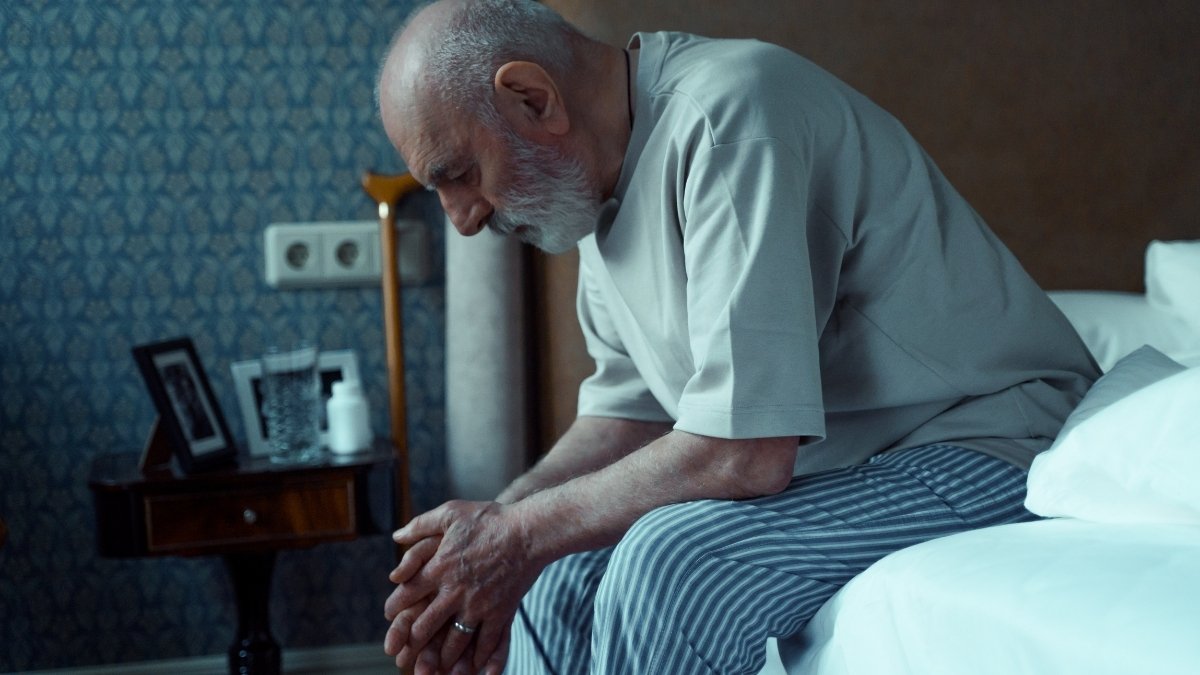Your Heart Is Begging You To Stop Doing #5 Immediately (Cardiologists Warn)

Every 36 seconds, someone in the United States dies from cardiovascular disease. Many of these deaths could be prevented by stopping seemingly innocent daily habits. You probably think you’re doing everything right for your heart.
You don’t smoke. You try to eat healthy. You might even exercise sometimes. But there are silent killers hiding in your daily routine that cardiologists see destroying hearts every single day.
Most people focus on the obvious risks while missing the real heart damaging habits. These aren’t the scary things you read about in medical journals. These are normal activities you do without thinking – like how you sit at work or when you go to bed.
The worst part? These bad habits for heart health work slowly and quietly. You won’t feel them hurting you today or next week. But they’re damaging your cardiovascular system bit by bit, building up to a heart attack or stroke you never saw coming.

Here’s the good news: once you know what these habits are, you can stop them. Your heart can heal itself when you give it the chance. Even small changes can cut your heart disease risk dramatically.
In the next few minutes, you’ll learn about 7 surprising habits that are silently destroying hearts. More importantly, you’ll get specific action steps for heart disease prevention that you can start using today. Some of these will shock you – especially habit #5.
The Hidden Heart Killers: 7 Habits Destroying Your Cardiovascular System
Your morning coffee routine could be killing your heart. So could the way you sit at work. These aren’t the big scary things like smoking or drinking too much.
These are the small things you do every day. The American Heart Association says 80% of heart attacks and strokes can be prevented. But here’s the problem: most people focus on the obvious risks while missing the real killers.

The worst part? These heart damaging habits sneak up on you. They don’t hurt today or tomorrow. They work slowly, like rust eating away at metal. Your cardiovascular health gets worse bit by bit, year after year.
But there’s good news. Your heart can heal itself when you stop doing the damage. Studies show that people who change these habits can reverse years of harm in just months. Even if you’ve been doing these things for decades, it’s not too late.
The 7 habits below might surprise you. Some seem totally harmless. Others you probably think are good for you. But cardiologists see the damage they cause every single day.
Ready to find out what’s really hurting your heart?
Habit #1: Sitting for More Than 6 Hours Daily (The New Smoking)
You sit down to work at 9 AM. You look up and it’s 3 PM. You haven’t moved except to grab coffee. Sound familiar?
The Mayo Clinic studied 120,000 people for 14 years. Those who sat more than 8 hours daily had a 90% higher risk of dying from heart disease. That’s worse than smoking a pack of cigarettes every day.
Here’s what happens when you sit too long. Your blood moves slower through your body. Your heart pumps less blood with each beat. Fat and sugar stay in your bloodstream instead of getting burned for energy.

This creates a perfect storm for sedentary lifestyle heart disease. Blood clots form easier in your legs. Your heart muscle gets weaker from lack of work. Your body stops responding to insulin properly.
But you don’t need to quit your desk job. Small changes make a huge difference for your sitting heart health. Stand up every 30 minutes for just 2 minutes. Take phone calls while walking. Use a standing desk for half your workday.
Try walking meetings instead of conference rooms. Park farther from the building. Take stairs instead of elevators. Set a timer to remind you to move. These simple steps can cut your heart disease risk in half.
Your heart needs you to move. Even 5 minutes of walking every hour can save your life.
Habit #2: Chronic Sleep Deprivation (Less Than 7 Hours Nightly)
You stay up too late again. Your phone shows 1 AM but you can’t put it down. Tomorrow’s alarm still goes off at 6:30 AM.
The Sleep Foundation found people who sleep less than 6 hours have 48% higher heart disease risk. Just one extra hour of sleep cuts that risk by 22%. Your heart repairs itself while you sleep, but only if you give it enough time.

Poor sleep keeps your blood pressure high all day. It floods your body with stress chemicals that damage blood vessels. Sleep apnea is worse – your heart races hundreds of times per night trying to keep you breathing.
Fix your sleep heart health with three rules: phone away at 10 PM, cool dark bedroom, same bedtime every night. If you snore loudly or feel tired after 8 hours, see a doctor about sleep apnea.
Habit #3: Ignoring Chronic Stress Signals
Your shoulders stay tight all day. Your jaw hurts from clenching. You tell yourself this is just normal work stress, but your heart is paying the price.
The American Psychological Association found 75% of adults report physical symptoms from stress. Chronic stress heart disease happens when your body pumps out cortisol for months or years. This stress hormone makes your blood pressure spike and your arteries stiffen.

Watch for these warning signs: chest tightness during stressful moments, heart racing over small problems, or trouble sleeping when worried. Stress makes you reach for cigarettes, junk food, or alcohol – all heart killers.
Start stress management heart health with the 4-7-8 breathing technique: breathe in for 4 counts, hold for 7, exhale for 8. Do this three times when stressed. Take a 10-minute walk outside daily. Say no to one thing each week that adds stress without adding value.
Your heart can’t tell the difference between a real emergency and your daily worries. Treat stress like the heart attack risk it really is.
Habit #4: Regular Consumption of Ultra-Processed Foods
You grab a frozen dinner for lunch. Read the label – can you pronounce half those ingredients? If it has more than 5 ingredients you can’t say, it’s ultra-processed.
Harvard studied 200,000 people for 30 years. Those who ate the most ultra-processed foods had 32% higher heart disease risk. These foods are loaded with hidden sodium, trans fats, and chemicals your body doesn’t recognize.

Each processed meal spikes your blood pressure and cholesterol. The excess sodium makes your heart work harder to pump blood. Trans fats stick to your arteries like glue. Preservatives cause inflammation throughout your body.
Start your heart healthy diet with simple swaps. Replace frozen dinners with pre-cooked rotisserie chicken and bagged salad. Swap chips for nuts. Choose oatmeal over sugary cereal. Cook one big meal on Sunday and eat it all week.
Real food doesn’t need a long ingredient list. If your great-grandmother wouldn’t recognize it, your heart probably won’t either.
Habit #5: Neglecting Dental Health (The Shocking Heart Connection)
Your gums bleed when you brush. You think it’s normal. But those bleeding gums are sending bacteria straight to your heart every time you chew.
Harvard tracked 60,000 women for 8 years. Those with gum disease had 2.7 times higher heart attack risk. The bacteria from your mouth travels through your bloodstream and sticks to damaged areas in your heart arteries.

Here’s how gum disease heart disease works. Bad bacteria in your mouth creates pockets of infection in your gums. When you eat or brush, these bacteria enter your blood. Your immune system attacks them, causing inflammation throughout your body including your heart.
Red, swollen gums that bleed easily predict heart problems better than cholesterol tests. If your gums pull away from your teeth or you have bad breath that won’t go away, see a dentist immediately.
Save your heart with better oral health cardiovascular care. Brush twice daily for 2 minutes. Floss every night before bed. Use antibacterial mouthwash. Get professional cleanings every 6 months.
Your mouth is the gateway to your heart. Keep it clean and your heart will thank you.
Habit #6: Social Isolation and Loneliness
You come home to an empty house every night. Your phone hasn’t buzzed with a friend’s text in weeks. You tell yourself you’re fine being alone, but your heart disagrees.
Harvard followed 300,000 people for 7 years. Those with strong social connections had 50% better survival rates from heart disease. Loneliness heart disease happens because isolation triggers the same stress response as physical pain.

When you feel lonely, your body floods with stress hormones and inflammation markers. Your blood pressure stays high. Your immune system weakens. Social isolation cardiovascular damage builds up just like smoking or poor diet.
One close friend helps your heart more than 100 acquaintances. Call someone you haven’t spoken to in months. Join one group activity this week – book club, walking group, or volunteer work. Text three people just to check in.
Your heart needs human connection to stay healthy. Make relationships a priority, not an option.
Habit #7: Ignoring Regular Health Screenings
You feel fine, so you skip your doctor visit. Your last physical was three years ago. But heart disease doesn’t knock before it enters – it sneaks in silently.
The CDC found 47% of Americans have major heart disease risk factors they don’t know about. High blood pressure has no symptoms until it causes a heart attack. High cholesterol feels exactly like normal cholesterol.

Heart disease screening catches problems before they kill you. Get blood pressure checked yearly after 18. Test cholesterol every 5 years starting at 20. Don’t ignore chest tightness or shortness of breath.
Fight for preventive cardiology care. Tell your doctor you want a full heart health workup. Ask for an EKG if you’re over 40. Your heart problems won’t announce themselves.
The Hidden Truth About Heart Health: Stop These Silent Killers Now
Your daily habits are quietly destroying your heart faster than you realize, with someone dying from cardiovascular disease every 36 seconds in the U.S.
The most shocking discovery is habit #5 – neglecting your dental health, where bleeding gums send dangerous bacteria directly to your heart, increasing heart attack risk by 2.7 times.
These seven silent killers work slowly and painlessly, from sitting too long and sleeping too little to eating processed foods and ignoring chronic stress.

Social isolation and skipping health screenings compound the damage, creating a perfect storm for heart disease.
The good news is your heart can heal itself when you eliminate these habits – even small changes can dramatically reduce your risk within months.
Don’t wait for symptoms that may never come; 80% of heart attacks and strokes are preventable when you address these hidden dangers. Your heart is literally begging you to make these changes today, before it’s too late.






